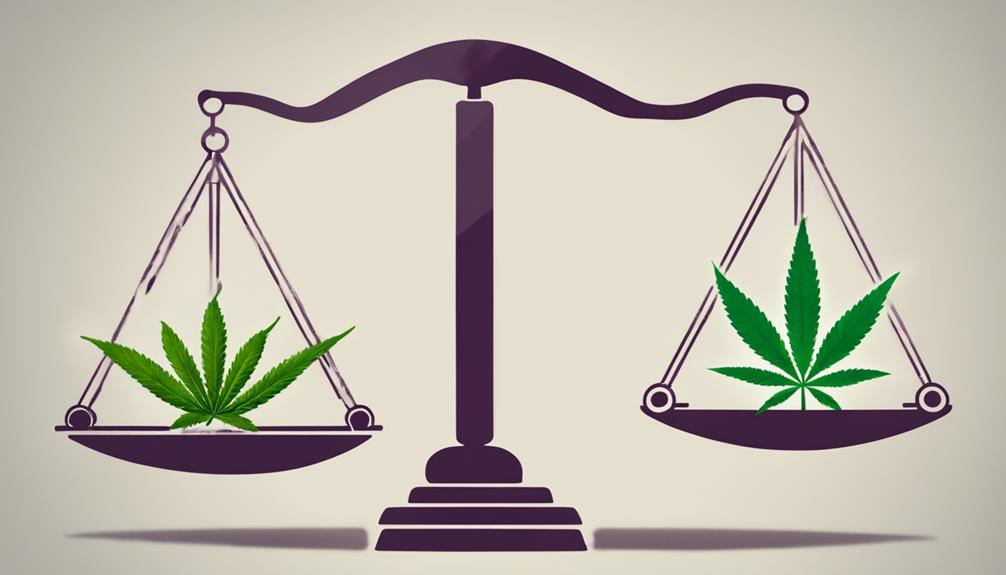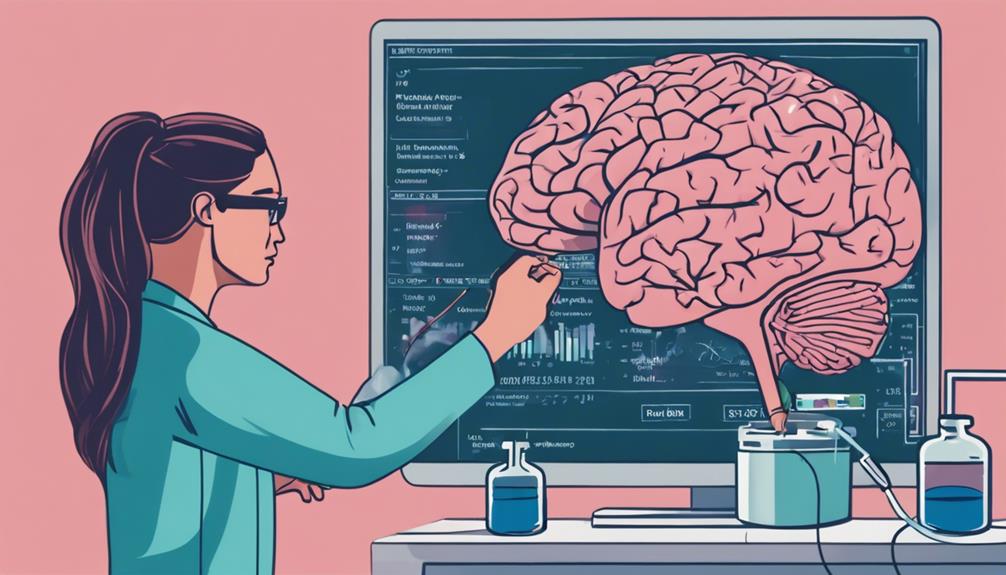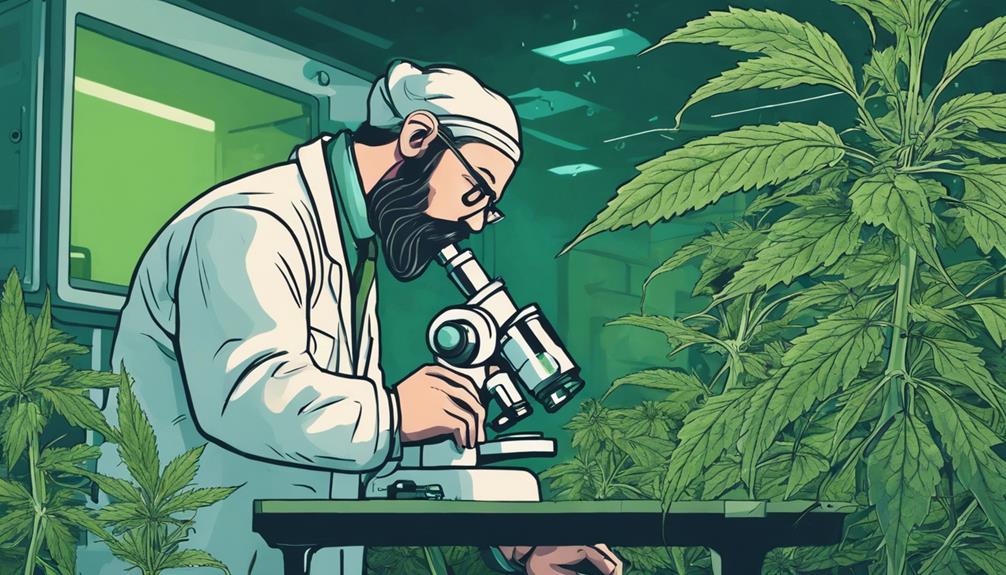Chances are, you’re more familiar with recreational marijuana than its medical counterpart. However, have you ever considered how medical marijuana could be a game-changer for those suffering from seizure disorders? The key lies in the mix of compounds found within the plant. Medical marijuana typically contains higher levels of CBD, a compound known to help control seizures, and lower levels of THC, the psychoactive component. It’s an intriguing subject that holds great potential for further exploration.
Understanding Medical Vs Recreational Marijuana

Distinguishing between medical and recreational marijuana is crucial in understanding their respective roles in seizure control. Each has significant legal implications that shape their accessibility and usage.
Medical marijuana is primarily used for its therapeutic potential and is usually regulated and distributed under strict laws requiring a prescription from a certified healthcare professional. This structure ensures the substance is used for its intended medical purpose, potentially reducing misuse or abuse risk. However, this tight control can create access barriers for some patients needing treatment.
In contrast, recreational marijuana is designed for general adult use and often faces fewer restrictions. While it’s typically more accessible than medical marijuana, it lacks stringent regulations which can lead to inconsistent quality and potency impacting its efficacy in seizure control.
Therefore, understanding both types of marijuana’s legal implications and access barriers allows you to make informed decisions about using the most suitable product for your needs.
Differences in Cannabinoid Content
You might be surprised to learn that not all marijuana strains are created equal when it comes to cannabinoid content. The cannabinoid ratios in medical and recreational cannabis differ significantly, influencing their medicinal benefits.
Medical marijuana is specifically bred to have higher concentrations of CBD, a non-psychoactive cannabinoid known for its healing properties, and lower levels of THC, the psychoactive component that causes the “high”.
In contrast, recreational marijuana typically contains high THC and low CBD.
This difference is significant because CBD has proven beneficial in managing seizures, especially in treatment-resistant epilepsy. A study published in the New England Journal of Medicine showed a median reduction in monthly seizures by 38.9% in patients treated with CBD compared to 13.3% with a placebo.
Moreover, maintaining the balance between CBD and THC in medical marijuana is crucial. Too much THC can exacerbate seizures while CBD works to counteract this effect. Therefore, controlling the cannabinoid ratios ensures patients receive therapeutic benefits without adverse side effects.
The Role of Dosage Control

Dosage control plays a key role in successfully managing seizures with medical marijuana as it directly impacts its therapeutic efficacy.
When comparing efficacy between medical and recreational marijuana, the former excels primarily due to precise dosing. Medical marijuana is usually administered under a healthcare provider’s supervision who can adjust dosage based on patient response—maximizing benefits while minimizing potential risks—a level of control not achievable with recreational use where focus lies more on user experience than specific health outcomes.
Precise dosage also allows for consistent use which is essential in managing chronic conditions like seizures. Regular, controlled doses ensure that the appropriate amount of cannabinoids is present in the body at all times, providing a steady level of symptom control.
In contrast, inconsistent dosing often associated with recreational use can lead to periods of insufficient symptom control, potentially exacerbating seizures. For those seeking to use marijuana as a treatment for seizures, medical use with controlled dosing provides a more reliable and effective approach.
Evaluating Safety and Side Effects
While dosage control is fundamental when using medical marijuana for seizures, it’s also important to consider safety and potential side effects of this treatment. Be mindful of long-term effects and potential interactions with other medications.
The long-term effects of medical marijuana on seizure control are still under investigation. However, preliminary studies indicate many patients experience a reduction in seizure frequency and severity. It’s crucial to recognize that everyone responds differently to medical marijuana—some patients may experience side effects such as fatigue, vertigo or mood changes.
It’s also important to consider potential interactions between medical marijuana and other seizure medications. Medical marijuana could interact with specific anti-seizure drugs altering their efficacy or amplifying their side effects. Discuss this possibility with your healthcare provider before starting medical marijuana treatment.
Clinical Studies and Evidence

A wealth of evidence from clinical studies supports the efficacy of medical marijuana for seizure control. When comparing efficacy between medical and recreational marijuana, the former significantly outperforms the latter.
Studies show that cannabidiol (CBD), a key component of medical marijuana, notably reduces both the frequency and severity of seizures. A 2017 study published in the New England Journal of Medicine found that patients with Dravet syndrome, a severe form of epilepsy, experienced a 39% decrease in seizure frequency when treated with CBD compared to just a 13% decrease in those taking a placebo.
Moreover, long-term benefits of medical marijuana for seizure control are promising. A 2019 study published in the Journal of Epilepsy Research found that after one year of CBD treatment, 30% of patients experienced more than a 90% reduction in seizure frequency.
While recreational marijuana might offer temporary relief, it lacks the consistency and targeted treatment provided by medical marijuana. The evidence clearly shows that if you’re seeking a reliable long-term solution for seizure control, medical marijuana is your best bet.
Patient Testimonials and Experiences
Moving from clinical studies to personal experiences provides insight into what actual patients have to say about using medical marijuana for seizure control. Personal anecdotes often paint a more vivid picture than clinical data can.
Many patients share success stories about transitioning from conventional seizure medications to medical marijuana. These testimonials detail significant improvements not only in seizure control but also overall quality of life.
You’ll find stories about patients who finally found relief with medical marijuana after years of unsuccessful attempts with traditional medicine. They report reduced seizure frequency and even complete cessation in some cases.
But it’s not just about controlling seizures—patients often highlight additional benefits such as fewer side effects compared to their previous medications. They talk about improved sleep quality, better mood regulation, increased appetite and an overall sense of wellbeing.
These first-hand experiences provide valuable insight into the potential benefits of using medical marijuana for seizure control while underscoring the need for continued research and wider accessibility.
Conclusion
In conclusion, when it comes to controlling seizures, medical marijuana is far superior to recreational. It’s packed with higher CBD levels, lower THC and precise dosing—all essential for effective and safe treatment. Recreational marijuana, with its unpredictable quality, can’t compare to the benefits of medical marijuana. For those struggling with seizures, choosing medical marijuana is a no-brainer—it’s not just a better choice; it’s leagues ahead in terms of seizure control.
If you’re interested in learning more about how medical marijuana can help you manage seizures, consider visiting Fells Point Cannabis Docs of Maryland or give us a call at (410) 401-4200. Our friendly and knowledgeable team is ready to guide you through the process and answer any questions you may have. We look forward to helping you make informed decisions that will benefit your health.

